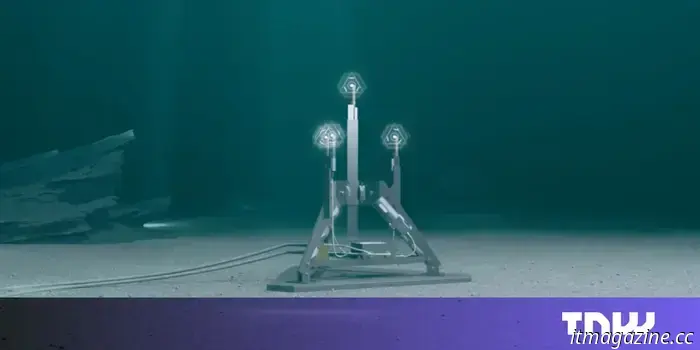
A European night train startup assures sustainable, luxurious travel at the price of airline tickets.
The Berlin-based startup Nox Mobility debuted this month with ambitious plans to establish a night train service linking over a dozen European cities. The network will offer stylish, private cabins at prices comparable to short-haul plane tickets.
Although there are some night trains operating in Europe, the cabins are usually quite small, and finding private booths can be challenging. Some existing services, like the European Sleeper, which connects Brussels and Prague, utilize refurbished trains that some travelers report as feeling outdated.
Nox’s co-founder, Janek Smalla, expressed his belief that rail travel is “pretty much the worst-managed transport mode” in Europe, pointing to the lack of standardization, misaligned policies, complex infrastructure, and inflexible operators. He noted that sleeper trains experience some of these broader industry issues as well.
“Currently, night trains are unreliable and uncomfortable — you’re packed into a noisy cabin with strangers, and private cabins are either very cramped or quite costly,” Smalla commented. “Additionally, ticket prices often exceed those of air travel, making it an unattractive choice for many.”
However, Smalla is optimistic that sleeper trains can be as affordable as flights while offering greater comfort and convenience.
“Short-haul flights are cumbersome due to security checks, queues, limited space, and little privacy,” he noted, recalling his previous ventures with FlixTrain and managing Bolt’s ridesharing market in Germany. “With night trains, you simply board, sleep through the journey, and awaken refreshed in a new location,” he explained. “It’s a far more relaxed experience and much better for the environment.”
Nox intends to operate 100 routes connecting major European hubs by 2036. To bring this vision to life, Smalla launched Nox in March with his co-founder, Thibault Constant, known as Simply Railway to his 500k followers on social media. Together, they aim to address the practical challenges that have long burdened overnight rail travel.
Nox plans to provide three types of cabins. The "Single" and "Double Loft" rooms come with elevated beds accessed via a ladder, along with separate seating and table areas. Passengers sleep perpendicular to the travel direction and can gaze out of a small window.
For a more luxurious experience, the “Double Vista” cabins feature low-floor beds that can convert into daytime seating, allowing passengers to sleep aligned with the train's path. These cabins also include larger panoramic windows, with all rooms offering 2-meter-long mattresses.
Smalla mentioned that the company is considering soundproof doors for selected cabins to allow for connections between rooms — ideal for families or groups traveling together. When not in use, these doors could be securely closed, returning the cabins to private single or double occupancy.
Nox plans to provide onboard food and drink service, bike storage, and wheelchair-accessible coaches.
Single rooms will start at €79, while double rooms will begin at €149. Prices are expected to vary based on demand, and the fee will be charged per room.
Nox’s first route is set to launch in 2027, with plans to expand to 100 routes across Europe by 2036. The network will include cities such as Amsterdam, Paris, Barcelona, Stockholm, Copenhagen, Berlin, Warsaw, Frankfurt, Munich, Vienna, Zurich, Milan, and Rome.
Looking ahead, Nox faces competition as it seeks to transform the night train industry. French startup Midnight Train entered the market in 2021 with a "hotel on wheels" concept but ceased operations last year due to insufficient investment.
Smalla is hopeful that Nox will succeed. The startup aims to manage booking and scheduling internally to enhance customer experience and intends to manufacture new trains rather than repurpose old ones. It will collaborate with established rail companies to produce standardized, modular carriages to lower costs.
While the potential is enticing, especially for those seeking eco-friendlier alternatives to flying, Nox faces significant challenges as it attempts to innovate within one of Europe’s most traditional and heavily regulated sectors.
European rail is known for its slow pace, complex national regulations, fragmented infrastructure, and lengthy procurement cycles. For a startup aiming for sleek designs, private cabins, and competitive pricing, the real challenge may lie not in reshaping the customer experience but in navigating a system not designed for agility.
Smalla acknowledges these challenges. “We understand that what we’re doing isn’t easy,” he admitted. “But if we succeed, it could create a new way to travel across Europe. It may encourage more people to choose trains over planes and cars, which I believe most would agree is a beneficial change.”
Nox is currently focused on obtaining final approval for its cabin designs as it prepares for its first significant funding round later this year.
Update (23:42 CET, June 24, 2025): A previous version of this article included Smalla's comment




Other articles
 Danish biotechnology company Cellugy aims to substitute microplastics in cosmetic products.
Cellugy has secured €8.1 million in funding from the EU to expedite the manufacturing of a biodegradable material intended to substitute microplastics in cosmetic products.
Danish biotechnology company Cellugy aims to substitute microplastics in cosmetic products.
Cellugy has secured €8.1 million in funding from the EU to expedite the manufacturing of a biodegradable material intended to substitute microplastics in cosmetic products.
 These sensors "eavesdrop using light" to protect Europe from underwater sabotage.
The system is capable of detecting enemy submarines, drones, and surface ships from a distance of up to 150km — all while keeping its own location concealed.
These sensors "eavesdrop using light" to protect Europe from underwater sabotage.
The system is capable of detecting enemy submarines, drones, and surface ships from a distance of up to 150km — all while keeping its own location concealed.
 Beijing mandates quality inspections for electric vehicles amid efforts to address the price war.
Beijing's alert is the most recent indication of increasing regulatory oversight of the Chinese electric vehicle industry.
Beijing mandates quality inspections for electric vehicles amid efforts to address the price war.
Beijing's alert is the most recent indication of increasing regulatory oversight of the Chinese electric vehicle industry.
A European night train startup assures sustainable, luxurious travel at the price of airline tickets.
The Berlin-based startup Nox Mobility has launched with ambitious plans to introduce a night train service linking over a dozen European cities.
